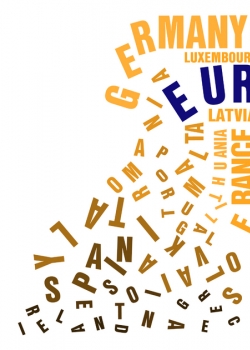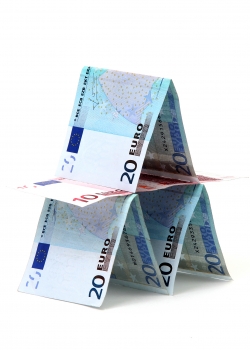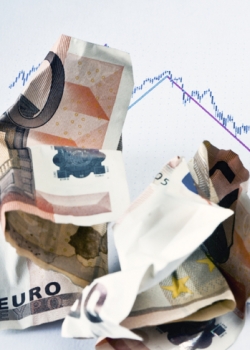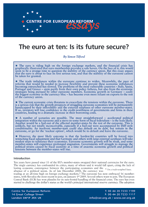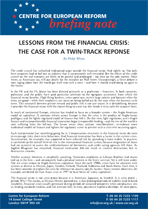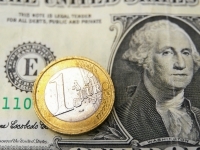The euro
Issue 72 - 2010
28 May 2010
- Will the Conservatives' charm offensive endure?, Charles Grant
- The euro's reality gap, Simon Tilford
- Russia and the West: Is the reset working?, Katinka Barysch, Tomas Valasek
Closing the gap between rhetoric and reality is key to the euro's survival
10 May 2010
Europe faces a critical choice between greater integration and disintegration. The gap between the rhetoric of a united and integrated Europe and the reality of national interests and politics has always dogged Europe.
The dangers of a disgruntled Germany
07 May 2010
Germany has finally agreed to help bail out Greece. The negotiations were acrimonious and took months. Angela Merkel’s hesitation and prevarication have increased the cost of the bail-out and unsettled financial markets.
Turning Japanese?
30 April 2010
Japan has long had the highest level of public debt of any developed economy. The country’s public debt to GDP ratio is around 200 per cent of GDP, far in excess of even the EU’s worst performers.
There can be no eurozone stability without economic growth
01 April 2010
The German government believes that tougher fiscal rules are the solution to current strains in the eurozone. No doubt such rules are necessary. But they are not enough.
Why Christine Lagarde is right about Germany
26 March 2010
Greece’s recent fiscal travails have, slightly unexpectedly, thrown the spotlight on Germany’s current-account surplus. In mid-March, France’s finance minister, Christine Lagarde, urged Germany to do more to boost domestic demand – a call echoed by the European Commission’s president, José Manuel Barroso.
Issue 71 - 2010
26 March 2010
- There can be no eurozone stability without economic growth, Simon Tilford
- Should Britain leave EU police and justice policy?, Hugo Brady
- The EU must deliver on its commitment to Pakistan, Clara Marina O'Donnell
It’s the economics, stupid
26 February 2010
There was always a risk that a one-size-fits-all monetary policy would lead to big divergences in inflation and competitiveness across the eurozone. This, in turn, would result in trade imbalances which would be difficult to reverse.
Sharing the burden of a weaker dollar
01 December 2009
The eurozone has suffered a deep recession – bigger than the US and about as bad as that in the UK. Public finances across the eurozone have worsened dramatically, and in some cases now look perilous.
Issue 69 - 2009
27 November 2009
- An open letter to David Cameron, Charles Grant
- Sharing the burden of a weaker dollar, Simon Tilford
- Ukraine and the EU: A vicious circle?, Tomas Valasek
Greece: Nowhere to hide
08 October 2009
The Greek economy is on a very dangerous course. Unless the government takes steps to boost productivity and strengthen public finances, Greece faces a bleak future.
Europe's imbalanced response to the financial crisis
01 October 2009
Since last year, politicians and regulators across the G20 have been hard at work trying to place the international financial system on a more stable long-term footing. Many critics believe they are not doing enough.
Issue 68 - 2009
25 September 2009
- Europe leaves behind the era of treaty change, Charles Grant
- Europe's imbalanced response to the financial crisis, Philip Whyte
- Britain must pool defence capabilities, Clara Marina O'Donnell
Issue 65 - 2009
27 March 2009
- Europe's flagging response to the financial crisis , Philip Whyte
- Carbon price collapse threatens the EU's climate agenda, Simon Tilford
- In the name of EU solidarity, Katinka Barysch
What if the eurozone broke up?
23 March 2009
The future of the euro may not be secure, warned the CER’s Simon Tilford in a January 2009 essay. The current economic crisis threatens to exacerbate the tensions within the eurozone, and an insolvent member-state... could default and leave the eurozone. Since January, the economic crisis has deepened further, and the eurozone’s weakest economies have come under even greater strain.
Germany: Between a rock and a hard place
19 February 2009
Twelve months ago it seemed inconceivable that any member of the EU could face a sovereign debt crisis. It would have been the stuff of fantasy to argue that Ireland or Austria could be among those at risk.
The euro at ten: Is its future secure?
07 January 2009
The euro is riding high and the financial crisis has illustrated the safe haven that membership provides. On the face of it, the future of the single currency looks rosy.
Lessons from the financial crisis: A twin-track response
05 November 2008
The credit crunch has unleashed widespread anger outside the financial sector. And rightly so. Not only have taxpayers had to bail out an industry that is uncommonly well rewarded. But the effects of the credit crunch on the real economy are likely to be painful and prolonged – not least on the jobs market.
Time for the Export-Weltmeister to start consuming
13 February 2008
Too many Europeans are blaming the US for the economic slowdown in Europe, as if everything would have been fine if only the Americans were not so irresponsible. This is complacent.
Politics, Sarkozy and the euro
03 December 2007
Not long after its launch, the euro was famously dismissed by a disgruntled currency trader as a “toilet currency”. How things have changed. Since 2003, the euro’s external value has soared, particularly against the US dollar.


